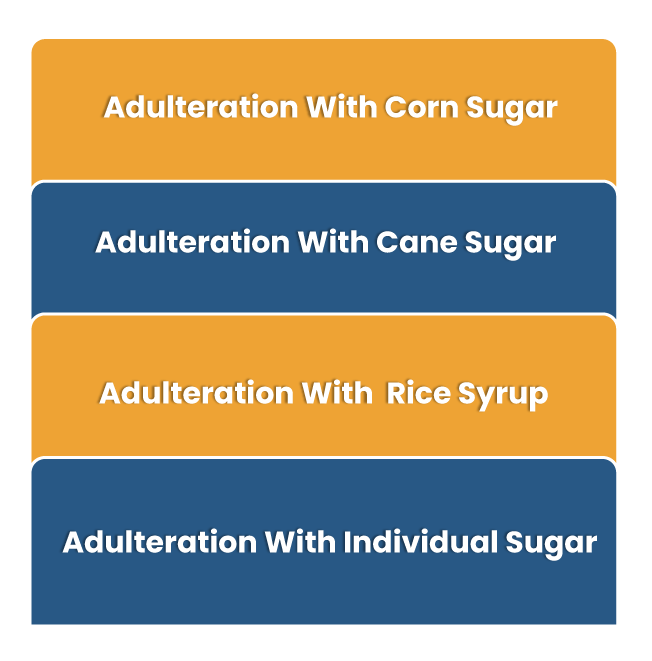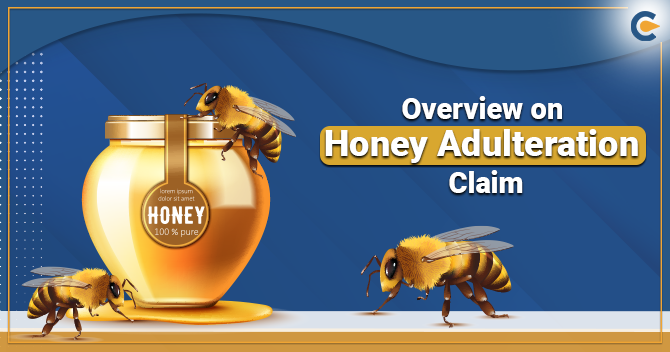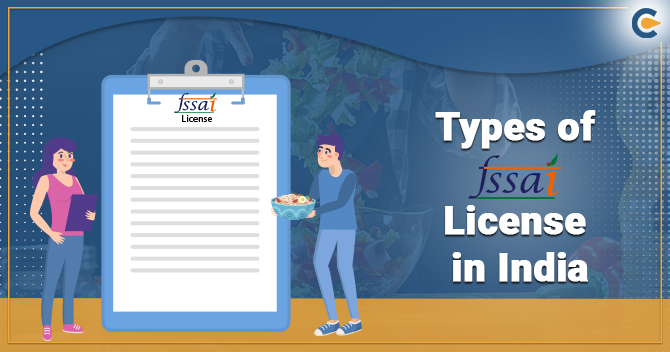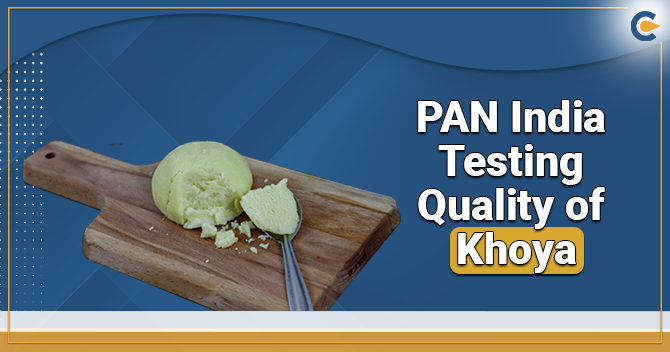Honey is a healthy natural sweet substance produced from collected honey bee nectar from different variety of flowers. Honey has many health benefits. Honey Adulteration is a legal term signifying that a food product fails to meet the required standard as set by the federal or state. Therefore, CSE has conducted the detection test and has claimed honey adulteration.
Quality Control Check against Adulteration of Honey
Because of the high value and benefit of honey it has stimulated the dealers by indulging into fraudulent acts of adulteration of honey. The adulteration can be done by mixing cheaper sweeteners either by a method of direct or secondary inclusion.
Therefore, rigorous quality control check and strict regulations must be there to make sure the quality and authenticity of honeys while at the same time safeguarding the health and wellbeing of the consumers. The researchers are constantly exploring and detecting, they are using efficient and sensitive detection systems using chemometric-integrated spectroscopic techniques to identify adulterants in honey.
These techniques have gathered noteworthy attention of researchers for use in detecting and classifying honey in addition to the adulterants that are incorporated.
Read our article:Food Processing Industry in India: A Ballooning Sector Fluttering High on Huge Investment Opportunities
Methods of Honey Adulteration
Honey adulteration methods can be both direct and indirect, which are as follows:-
Direct Honey Adulteration
This is a direct method means that the substance is directly added to the honey. Direct adulteration can be of four types as given below :


Indirect Honey Adulteration
This is a process of adulterating the honey bees are fed any kind of adulterating substance.
CSE Statement on Honey Adulteration Claim
The Centre for Science and Environment (CSE) is an organisation for public interest research and advocacy located in New Delhi. CSE researches about things that needs urgent attention and communicates the necessity of change and development that is both sustainable and reasonable.
After an investigation done by CSE in December 2020 it elucidated and released their statements on honey adulteration claim and stated about the ongoing ‘Food Fraud’. It had exposed that 77 per cent of honey samples to pass the tests of purity in honey and most of the brands producing honey were found to be adulterated with sugar syrups.
Out of the 13 brands that were tested only three brands were passed in the honey test detection. The brands that passed the test were Saffola, Sohna, Markfed and Nature’s Nectar. The few reliable brands including Dabur, Patanjali, Zandu, Baidyanath, etc failed the NMR (Nuclear Magnetic Resonance) test.
The CSE at the Centre for Analysis and Learning in Livestock and Food (CALF) at the National Dairy Development Board (NDDB) in Gujarat was the first to check the samples of this brand. According to the Centre for Science and Environment (CSE) most of the top brands passed the purity test but a few smaller brands failed the test and C4 sugar was detected which is the most basic adulteration using sugarcane.
But when the global test of Nuclear Magnetic Resonance (NMR) laboratory tests were done with the same brands to check for the use of modified sugar syrups then almost all the brands failed to pass in this test.
FSSAI’s Statement on the CSE Claim
After the CSE released the honey adulteration claim the Food Safety and Standards Authority of India (FSSAI) which is an autonomous body solely responsible to come up with guidelines for safeguarding the public health by ensuring food safety issued its statement.
- FSSAI said that it was unclear of why the CSE did not conduct the test by using Specific Marker for Rice syrup (SMR) test which is an extra focused and sensitive test prescribed by it. Rather the CSE used the NMR (Nuclear Magnetic Resonance) method, as this test is a swift and database-driven detection method with a restricted utility in the Indian perspective.
- The FSSAI also stated that till now there has been no food regulator in the world mandating the test method – NMR for honey.
- SMR is already a more sensitive driven test that has been made compulsory and it is a steadier and a focused test to identify rice syrup adulteration in honey. Therefore, it was felt by the expertise scientific experts that NMR test is not required as NMR test is not made obligatory as a test method as was said by FSSAI.
- For efficiency of NMR test method, the existence of prior database is a necessary requirement. And for Indian honey there is still no such database at present and so the NMR testing method will have a very restricted utility in honey adulteration claim.
- FSSAI had issued all these directions on 23rd December, 2020 for the first time which was done on the request from the Ministry of Agriculture which recommended that imported syrups are being used for honey adulteration.
- FSSAI said that strict action is requisite to put a stop to adulteration from various kinds of direct and indirect sources and so this order is not erroneous but is a part of the continuing efforts to prevent honey adulteration claim.
The Final Statement of CSE
After the FSSAI issued their statement the CSE felt it necessary to clear their stand. According to their statement, NMR (Nuclear Magnetic Resonance[1]) is an advanced honey adulteration test that can detect adulteration of honey with modified sugar syrups which can go undetected by any other tests. NMR test is being used in various different parts of the globe and is serving the same reason.
CSE in their statement referred to the Indian government saying that they have made NMR test compulsory since August 2020 for the entire honey adulteration claim that is used for exportation. The NMR testing system is an authentic testing system that can help the test detectors and agencies to find whether the honey is adulterated or not. It is important to know that which companies are selling adulterated honey so that necessary punitive action is taken against them.
Conclusion
The latest update on CSE’S honey adulteration claim is that because it is a Government approved and mandated test it should be enforced in India. As the business of honey adulteration is so much in prevalent in the market that in no time there will be syrups which can circumvent the NMR test as well. There is no doubt that adulteration has constantly evolved to surpass the laboratory test. Therefore, it is very important to regulate syrup tests. FSSAI has said that it will come up with better enforcement guidelines and traceability test of adulterated honey claim. It will take action against the companies involved in honey adulteration and bring new regulations as honey adulteration not only impacts our health but our food productivity and livelihood which urgently need to be protected.
Read our article:FSSAI Rules and Regulations for Food Sector











